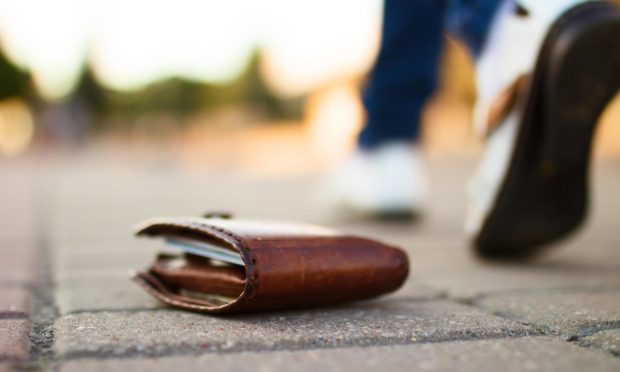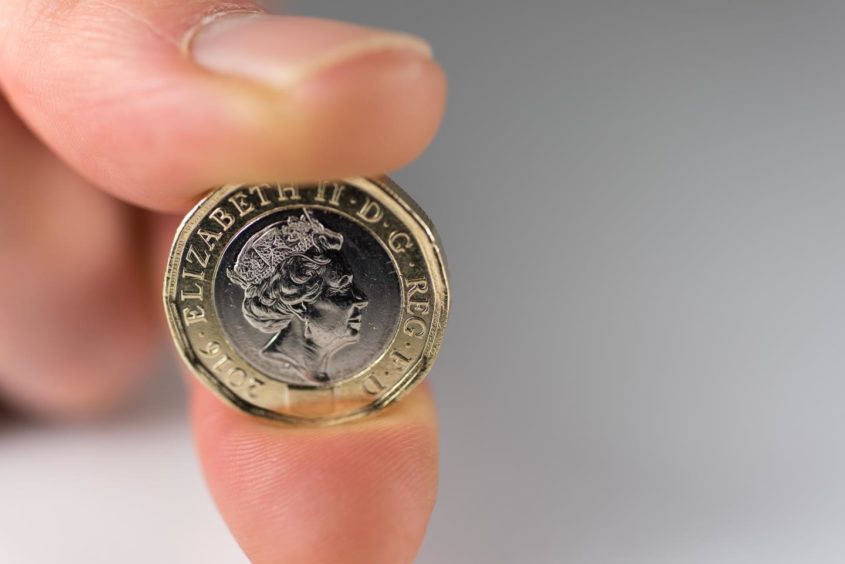A few weeks back, early one Saturday morning when out for a walk, I found two £10 notes lying on the pavement, obviously dropped by mistake.
There was no one else on the street, so I couldn’t approach anyone to ask if it was theirs. A guy was in his garden, in the house directly next to the one I’d just found the cash outside. I asked him if it was his money. No, he replied.
So, I decided there and then what I was going to do. I was going to give it to a local charity. I put the two notes in my back pocket and headed downtown.
It’s worth pointing out here that all this happened just before lockdown was eased. Therefore, the only shops I could go to were giant supermarkets. Charity shops were not open and no one was out on the street rattling a tin for, say, Cancer Research.
What would the teenage me have done if he’d found two £10 notes many years ago? I have to be totally honest here… keep them I’d imagine. But not these days of course.
What to do now? I decided, I’d hold on to them, and when lockdown ended and the vast majority of shops reopened, I’d choose a charity shop that appealed to me, and pop them in a donations box. I put the notes in a safe place, forgot about them and enjoyed my weekend.
However, as I sat down at my laptop on the Monday to get back into work, I couldn’t get the subject of finding money on the street out of my mind. Something was niggling me.
I started to delve into it, and wow was I taken aback. What a complicated subject indeed. Here’s what I came across.
Apparently, if you find money on the street, any amount, and if you don’t hand it in to the police, it is theft. It is illegal to keep lost cash. Any amount of cash it seems. Even a £1 coin.
Handing in a wallet is a no-brainer. A credit card, passport, bus pass, pension book, or anything similar, absolutely. They can all easily be traced back to the owner. But a solitary £5 note? Difficult one. Near impossible I’d say.
Anyway, you’re supposed to hand it in, and if no one claims it within 28 days, then you get to keep it. Seems fair.
A couple of years back, a woman in England was arrested and convicted of theft when she pocketed a £20 note that was lying on the ground inside a shop. She had to pay costs and compensation of around £200. Many say she should have handed it in to the shop. Others say no, as the shop would just have pocketed it for themselves. While of course some claimed “finders keepers”.
What do you think?
I think that in a shop it is clearer cut, as you do have more options. But out on the street, with no one around? Is it right that you can be charged with theft if you pocket a £10 note?
Should it not be down to your own conscience?
The Theft Act 1968 states: “A person is guilty of theft if he dishonestly appropriates property belonging to another with the intention of permanently depriving the other of it.”
Chief Inspector Karen Stevenson, from Staffordshire Police, said: “Morally, the right thing to do is hand in any found property so that the person who has lost out has every opportunity to be reunited with it.”
I get the feeling that the old phrase “finders keepers, losers weepers” doesn’t really stand up in law.
As I researched all this, a voice in head said: “But what’s the point? Even if someone notices that they have lost two £10 notes, who is going to bother to go to a police station and say they lost £20? And how can anyone prove that the money belongs to them?”
However, I soon came to realise that while these may be legitimate points, it was not for me decide.
If I had lost 20 quid, I’d be really annoyed at myself. But would I go to the police station and report it? No, I wouldn’t. Not because I’m not worried about losing this sum, it just would seem pointless to me.
But as it wasn’t me who lost it, I started to consider, who could have lost this money? It couldn’t have been some drunk guy on his way home from the pub as the pubs were all shut due to Covid.
What if it had been some great grannie who had dropped it? On her way back from the supermarket. What if this was her last £20 until next pension day?
What if it had been dropped by either the boy or girl who delivers morning newspapers? Two 10s stuffed in a jacket pocket… extremely easy for the notes to fall out when cycling along and hopping on and off a bike. I genuinely have no idea how much they get paid, but it can’t be a fortune. Therefore, I’d imagine that £20 in cash is a large amount to lose.
I came to a decision early Monday afternoon. I walked up to my local police station and handed it in. The officer at the desk thanked me, took the details and logged it.
“Does this happen often?” I asked. “People losing cash and others handing it in?”
“Oh yes,” she told me.
“What are the chances someone will come to claim it?” I asked.
“Small, unfortunately. Do you want me to contact you and let you know?”
“No, if no one claims it, can you just put it in a charity box?” I requested.
“Sure, we have one here. I’ll do that,” the officer answered.
I left the station feeling happy with my decision. I do hope someone claims it. But I’m still intrigued as to how anyone could prove the cash belongs to them.
As I walked home, I considered the following. What if my find had been only one £10 note? Would I have handed that in? I’m not sure. Probably. Maybe.
What about a £5 note? Hmm, this is getting harder and harder.
What about a single pound coin? No, I think I’d just keep that to be honest. Technically though, it is theft.
Suddenly my mind went off at a tangent. What if I had stumbled across a suitcase stuffed full of cash. £100,000 in used notes. Or a bag of diamonds. The mind boggles.
Very tempting indeed. But not really when you think it through logically. Such a find would most likely have come from ill-gotten gains.
Of course I wouldn’t keep a suitcase stuffed full of cash, and neither should anyone. The last thing you need is a bunch of hardcore criminals on your tail.
At the end of the day, I guess it’s up to each and every one of us to decide what to do if we find cash on the street.
Personally, I would not look down my nose at anyone who finds £5 on an empty street, then decides to either to give it to homeless person, stick it in charity box, or even pocket it.
Finders keepers and all that.
Then again…













